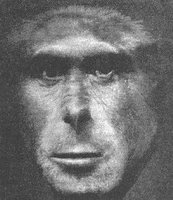Crimes against baseball
Records, they say, are made to be broken. Arguably, however, some records are made not to be broken. It seems unlikely that anyone will ever break Wayne Gretzky's NHL single-season goal record of 92, or his career record of 894. If someone comes along who does, the sky won't fall. But when, in 1961, Roger Maris broke Babe Ruth's single-season record of 60 home runs, it was as if he had committed sacrilege. The fact that the 61st homer was hit on the last day of the season, and that the season was eight games longer than in 1927, meant that Maris's feat went into the record books with that legendary asterisk. That the asterisk was non-existent on paper did not make it any less real in the public's mind. An upstart like Maris could not be allowed to tarnish the image of the Sultan of Swat.
Baseball is preeminently a sport of tradition. A game may last for three hours, but during most of that time next to nothing happens on the field. The pitcher throws to the catcher. The fielders stand motionless, at the ready. Then a long space. Then the pitcher throws to the catcher. The fielders stand motionless, at the ready. Then a long space. But in the spaces comes the commentary: the statistics, the replays, the stories of other games and other seasons. "That's only the third time since 1942 that a left-hand- hitting Cubs' shortstop batting in the number two position has been called out on the infield-fly rule in the bottom of the seventh inning." Baseball is a story told across the generations. What this story requires is a level playing field, so that Nolan Ryan can be measured against Walter Johnson or Roy Campanella against Pudge Rodriguez. Without the level playing field, the story degenerates into incoherence.
When Mark McGwire and Sammy Sosa both smashed Maris's record in the same year, 1998, hitting 70 and 66 homes runs respectively, then hit 65 and 63 the next year, and when Barry Bonds then hit 73 home runs in 2001, you knew something had to be wrong. This was not coincidence. The playing field wasn't level any more. Now Bonds has surpassed Ruth's lifetime total of 714 home runs, and is headed for Hank Aaron's all-time mark of 755. Aaron had to endure racist taunts when he broke Ruth's 714 mark, but no one could reasonably deny that he had become the greatest home-run hitter ever. His 755 means something because it stands against Ruth's 714, just as Roger Maris's 61* was right up there with Ruth's 60. But what do those other numbers mean: 70, 66, 65, 63, 73, 715-and-counting? Not much, in my books.
Baseball is preeminently a sport of tradition. A game may last for three hours, but during most of that time next to nothing happens on the field. The pitcher throws to the catcher. The fielders stand motionless, at the ready. Then a long space. Then the pitcher throws to the catcher. The fielders stand motionless, at the ready. Then a long space. But in the spaces comes the commentary: the statistics, the replays, the stories of other games and other seasons. "That's only the third time since 1942 that a left-hand- hitting Cubs' shortstop batting in the number two position has been called out on the infield-fly rule in the bottom of the seventh inning." Baseball is a story told across the generations. What this story requires is a level playing field, so that Nolan Ryan can be measured against Walter Johnson or Roy Campanella against Pudge Rodriguez. Without the level playing field, the story degenerates into incoherence.
When Mark McGwire and Sammy Sosa both smashed Maris's record in the same year, 1998, hitting 70 and 66 homes runs respectively, then hit 65 and 63 the next year, and when Barry Bonds then hit 73 home runs in 2001, you knew something had to be wrong. This was not coincidence. The playing field wasn't level any more. Now Bonds has surpassed Ruth's lifetime total of 714 home runs, and is headed for Hank Aaron's all-time mark of 755. Aaron had to endure racist taunts when he broke Ruth's 714 mark, but no one could reasonably deny that he had become the greatest home-run hitter ever. His 755 means something because it stands against Ruth's 714, just as Roger Maris's 61* was right up there with Ruth's 60. But what do those other numbers mean: 70, 66, 65, 63, 73, 715-and-counting? Not much, in my books.













